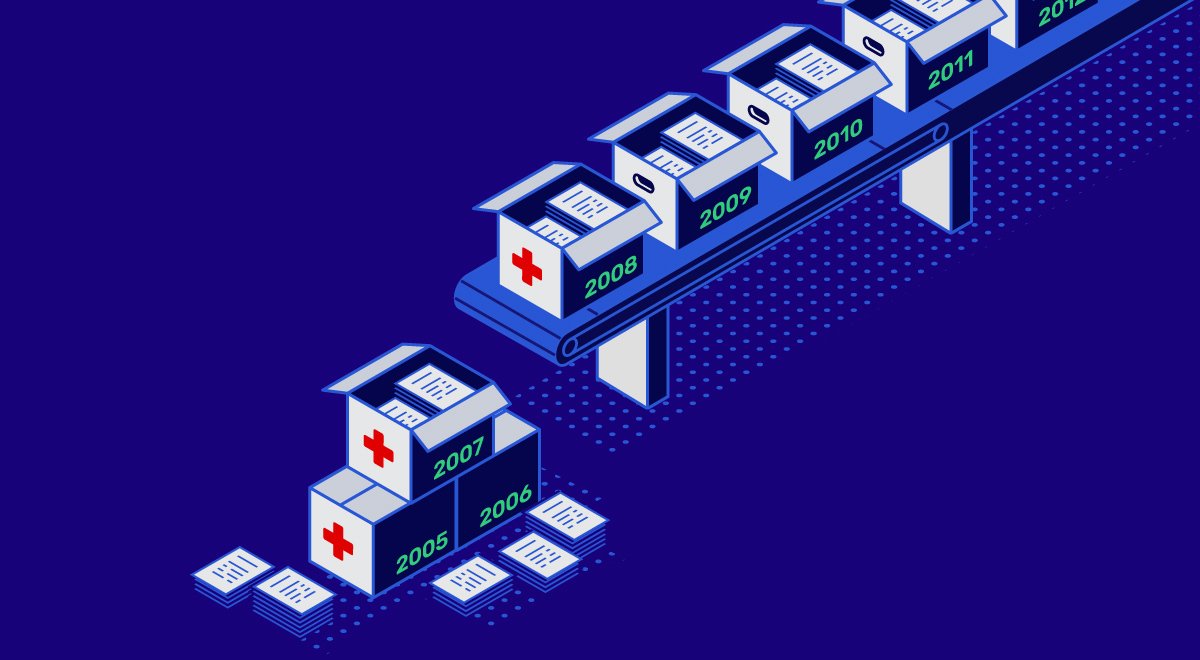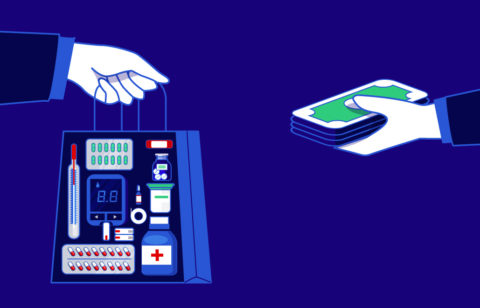Medical bills can often comprise a significant amount of the expenses you end up paying each month, especially if a family member or you is facing an acute illness that takes a prolonged period to treat. Trips to doctors’ offices and other medical treatment centers generate a significant amount of bills and other paperwork, all of which take up space and are hard to track. When you combine medical billing and records with your mortgage statements and other bills you receive in the mail each month, you could end up with a mountain of paperwork to handle. You don’t necessarily need to keep all that paperwork in the back of your closet forever, though. How long should you keep medical records and bills? Take a closer look.
Tax Reasons
One of the most important reasons to keep your medical bills on hand is for tax purposes. Medical expenses are a common tax deduction; taxpayers are allowed to deduct the amount of the total unreimbursed allowable medical care expenses for the year that exceeds 10% of their adjusted gross income. If you deduct medical expenses on your tax return in a given year, you need to keep them for an extended period. In the case of an IRS audit, you’ll need to have three years of tax records on hand for auditors. If you store those unreimbursed medical bills with the tax return where they served as deductions, it will make it easier for you to deal with any audit that you might face in the future.
Insurance Purposes
The IRS isn’t the only organization that could be interested in your medical expenses. Insurance companies may also request information about medical billing, as well as how it was reimbursed. After you’ve received treatment and been billed for it, keep those records on hand for at least a year, even if the insurance company reimbursed it entirely. If the insurance company decides to dispute a medical reimbursement later, you can use the billing statement as a point of reference. Similarly, if you’re in a dispute about an expected reimbursement on a medical expense, then you should maintain billing records until that dispute is resolved.
Medical Records
Beyond the bills you receive, even return treatments at clinics and hospitals generate numerous medical records. You should plan to keep your records indefinitely. Doctors may need a copy of those treatment medical records later to diagnose or treat a future illness you face. Additionally, if you attend school, play a sport, or enroll in some type of training class, you may need key parts of your medical records, such as vaccinations, to be eligible for the program. People who opt to enter government service, such as in the military, often need to provide documentation of their medical treatment history to enlist or serve.
Storing Records
Medical procedures and bills generate a great deal of paperwork, so you’ll need a plan to store them. Otherwise, they’ll just end up being an unorganized mess that stresses you out every time you go to look for a bill or a record of treatment. The unreimbursed bills you claim as deductions should be kept alongside the corresponding tax return on which it was claimed. Additionally, you should consider organizing your medical bills and records by the provider. This will make it easy for you to verify how you’re being billed from visit to visit, as well as spot any discrepancies. It will also simplify any search you have to do to find medical information for an insurance provider or other organization.
If you haven’t been filing all your medical paperwork, and it’s all a big mess right now, take a bit of time each week to sort and organize it. Over time, you’ll be able to get it neatly filed and easy to manage. In addition to organizing your historical medical files, you should ensure that any new medical billing or records you get are promptly filed as soon as you receive them. Filing cabinets are a good choice for organizing and storing these records. You can keep them there along with your other important financial and personal documents. You can also pack them in clearly labeled cardboard file totes.
Going Paperless
If space or clutter is an issue for you, you could also just toss all the papers and go digital. Scanners are inexpensive, and you could just scan your incoming bills to a file and then shred the paper copy. It may take a little more time to input your legacy medical paperwork that you’ve let build up, but you need to deal with all that mess sooner or later anyway. Having a digital copy of your records makes it easy to search and forward to other parties when necessary. Make sure to create and regularly update a backup file though, in case something happens to your main copy.
Keep Your Medical Bills and Records Organized
How long should you keep records and bills? The answer is always, “it depends.” However, you’re going to have to store this information for at least a year, and some of it you may want or need to keep indefinitely. Make a plan, find some space or buy a scanner, and get all your medical bills and records in good order as soon as you can.







